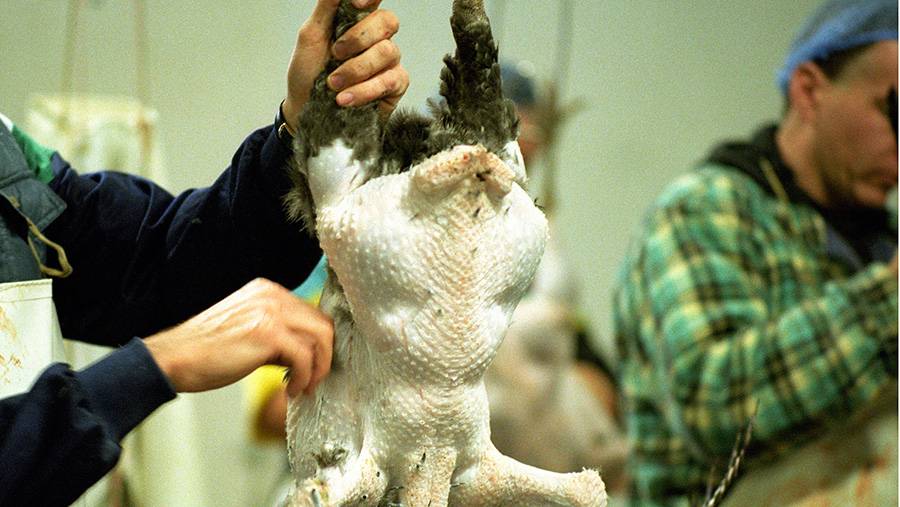Brexit and minimum wage squeeze poultry margins
 © Brian Harris/REX/Shutterstock
© Brian Harris/REX/Shutterstock Brexit and minimum wage rises could add millions of pounds to the poultry industry’s labour bill in the coming years, industry leaders have warned.
On 1 October the minimum wage rate rose by between 3-4.7% for workers between 16 and 25 years old, directly pushing up the labour bill this Christmas.
For those dependent on migrant labour, the weak pound has led to even more significant wage costs this year.
See also: Poultry industry considers Brexit priorities
Longer term concerns also include the national living wage, paid to workers over 25, which will rise from £7.20/hour this year to £9.02 in the next four years.
NFU poultry adviser Aimee Mahony said union members were reporting huge concerns over labour costs.
“The national living wage, minimum wage and weaker sterling were putting poultry businesses under pressure – not just this Christmas but for the longer term,” Ms Mahony said.
She added that the union was urging members to take part in a poultry sector labour survey to establish accurate facts on the number of workers from overseas.
Minimum wage rates from 1 October 2016 |
||
| Age/category | Rate/hour | % increase from 1 October |
| Apprentice | £3.40 | 3.0 |
| 16-17 | £4.00 | 3.4 |
| 18-20 | £5.55 | 4.7 |
| 21-24 | £6.95 | 3.7 |
| *National living wage (over 25) | £7.20 | No increase but will rise in April 2017 |
British Poultry Council chief executive Richard Griffiths said difficulties in attracting overseas’ labour this Christmas were a worrying sign of how Brexit could affect the sector.
“It is a concern and the first tangible impact of the uncertainties surrounding Brexit to directly hit UK poultry businesses,” Mr Griffiths said.
“For an industry where about 60% of the workers were from non-UK countries, the weakened sterling had the potential to cost millions of pounds in the next two years alone,” he warned.
Paul Kelly, managing director of Essex-based KellyBronze, reported that he had seen the farm’s wage bill for seasonal workers rise by £25,000 this year.
Mr Kelly employs 65 workers from Poland each year, who pluck 50,000 turkeys in the run up to Christmas.
Added labour costs
But the slump in sterling has seen rates fall against the Polish zloty from PLN6.1:£1 last December to PLN4.7:£1 this year.
“There was less incentive for workers to come. To encourage them, I have had to increase wages by 15% – adding £25,000 to our labour cost,” Mr Kelly said.
Goose Producers’ Association chairman John Franklin said he had been forced to increase prices to cope with the minimum wage rise.
He runs Franklins of Thorncote, near Sandy, Bedfordshire, which produces 600 broiler chickens a month and 2,500 birds for the Christmas market including turkeys, ducks and geese.
The farm employs 10 workers throughout the year and a further 10 in December.
“We pay a premium over the minimum wage to attract people to do the work.
“Every time the minimum wage goes up we have to increase our wages by the same amount or we have found people will look for other work.
“Our wage bill for Christmas has gone up by hundreds of pounds.
“With a business of our scale it is more difficult to absorb these costs so we have had to put our prices up by 3% to at least help recover some of the margin that we would otherwise lose,” he said.
